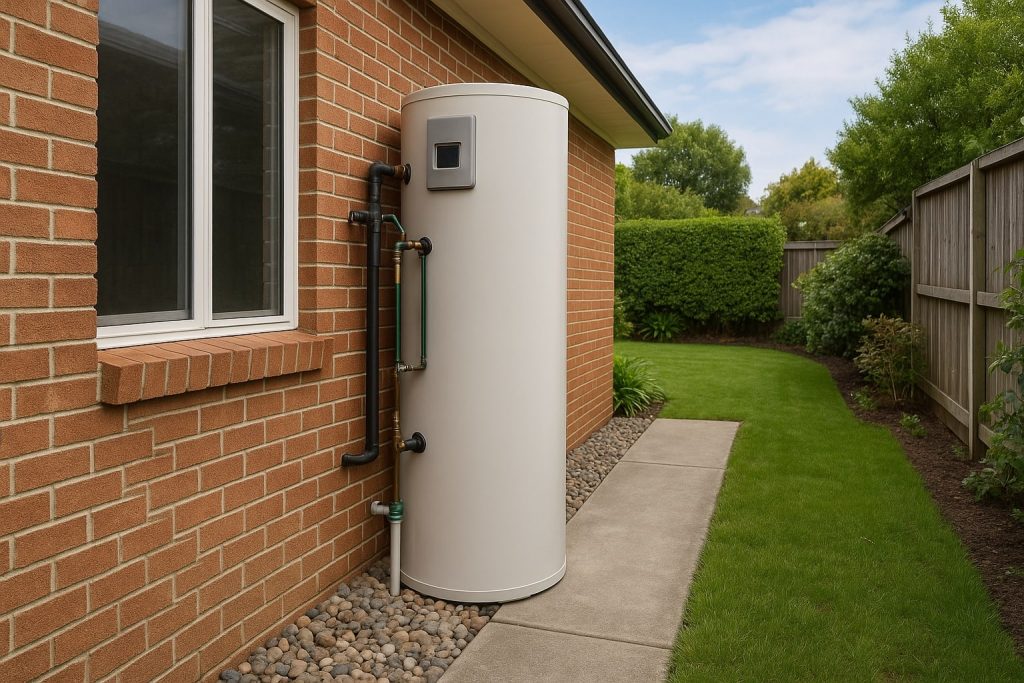A reliable hot water system is one of those things you don’t really think about until something goes wrong, like waking up to a cold shower or noticing your energy bills rising. Whether you’re dealing with inefficiencies or your system is nearing the end of its lifespan, upgrading your hot water system is a smart move. But with so many options available today, it can be hard to know where to begin.
This guide is here to help you understand your options, recognise when it’s time to upgrade, and choose the most suitable system for your household needs.
Types of Hot Water Systems
Before making a decision, it’s important to understand the main types of hot water systems available on the market today. Each system operates differently and suits households of various sizes and energy requirements.
Storage Water Heaters
Storage systems are among the most commonly used hot water systems in Epping. These units heat water and store it in a tank, ready for use at any time. The tank size can vary, typically ranging from 50 litres to over 400 litres, depending on the size of your household.
While storage heaters can be electric or gas-powered, newer models have become more efficient than their predecessors. However, they do have a downside; once the hot water runs out, you’ll have to wait for the tank to refill and reheat.
Continuous Flow Systems
Also known as instantaneous systems, continuous-flow water heaters heat water on demand. Rather than storing hot water, they activate only when the tap is turned on. This not only saves energy but also ensures you never run out of hot water.
These systems are usually gas-powered and compact, making them ideal for smaller homes or those with limited outdoor space. They’re also low maintenance and generally more efficient than traditional storage models.
Solar and Heat Pump Systems
Solar water heaters use solar panels to capture and convert sunlight into heat. While the upfront cost can be higher, long-term energy savings and rebates can make them a worthwhile investment. Solar systems usually include a backup electric or gas booster for cloudy days.
Heat pump water systems, on the other hand, work by extracting heat from the surrounding air to warm the water. These are some of the most energy-efficient water heaters available and are particularly effective in warmer Australian climates. While they use electricity, the consumption is significantly lower than in traditional electric systems.
Signs You Need an Upgrade
Many homeowners tend to wait until their system breaks down before replacing it, but there are earlier warning signs that it’s time to consider an upgrade.
- Inconsistent Water Temperature: If your showers suddenly turn cold, or the water never seems to reach the desired heat, it often indicates a problem with the heating element, thermostat, or a failing system struggling to keep up with demand.
- Age of the Unit: Most hot water systems are designed to last around 8 to 12 years. If your unit is nearing or has passed its expected lifespan, its components may be wearing out, leading to reduced efficiency and an increased risk of unexpected failure.
- Rising Energy Bills: A noticeable increase in your electricity or gas bill, without a change in usage habits, can be a red flag that your hot water system is losing efficiency and consuming more energy to heat the same amount of water.
- Rusty or Discoloured Water: If you notice rusty or brownish water coming from your hot taps, it’s a strong indicator of internal corrosion within the hot water tank. This can lead to leaks and is a sign the tank is nearing the end of its life.
- Leaks or Moisture Around the Unit: Any visible puddles, drips, or persistent dampness around the base of your hot water system are serious warning signs. This can indicate a crack in the tank, a faulty valve, or a leaking pipe, which could lead to significant water damage if not addressed promptly.
If you’re experiencing any of these issues, call 0411 295 646 to consult a licensed plumber in Epping who specialises in hot water systems.
Selecting the Right System for Your Home
When upgrading your system, it’s essential to consider your household’s size, water usage patterns, and energy goals. Here are some of the key factors to think about:
- Household Size: A larger family will typically need a bigger tank or a system that can deliver hot water continuously, such as a gas continuous flow system.
- Budget: While upfront cost matters, consider ongoing running expenses. Energy-efficient water heaters and heat pump water systems may cost more initially, but often result in lower energy bills.
- Space Availability: Storage tanks require more space than continuous flow or heat pump systems. Evaluate the available space, especially if the unit will be installed outdoors.
- Energy Source: Check whether gas, electricity, or solar is more readily available or cost-effective in your area. This will help you choose the most practical option.
- Regulations and Standards: Any installation or upgrade must comply with Australian regulations, including minimum energy performance standards (MEPS) and tempering valve requirements, to prevent scalding. Always work with a licensed plumber who understands these guidelines.
At Perspective Plumbing, our team is well-versed in the latest standards and offers a comprehensive range of installation services for hot water systems in Epping. We can help you assess your needs and recommend systems that provide efficiency, performance, and compliance.
Conclusion:
Upgrading your hot water system is more than just a home improvement; it’s an investment in your comfort, safety, and energy efficiency. By understanding the types of systems available, recognising when your current setup is due for replacement, and choosing the right solution for your needs, you can enjoy reliable hot water while potentially saving on long-term energy costs.
Contact us at 0411 295 646 for expert advice and the installation of hot water systems in Epping.


